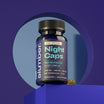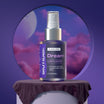In the realm where linalool terpene effects meet cannabinoids, an intriguing synergy unfolds. This aromatic compound, present in flowers and plants like lavender, mint, cinnamon, and rosewood, releases a floral aroma with subtle citrus undertones. Its unique lavender scent and array of *health benefits position it as a compelling candidate for inclusion in your daily regimen. Its fragrance, widely utilized in perfumes, cosmetics, and skincare products, adds a soothing and calming element. Throughout this exploration, we navigate the scientific landscape of linalool terpene effects, tracing its origins, therapeutic potentials*, and its harmonious interplay with cannabinoids.
 Linalool, a versatile monoterpene found in lavender and cannabis, has been extensively researched for its potential therapeutic effects. It is known to induce calmness in both the body and mind. Alongside renowned terpenes like limonene, myrcene, and pinene, linalool holds promise in the medical cannabis field for its therapeutic benefits*. It is also being investigated for its impact on migraines and other health concerns. Let's explore the origins, therapeutic attributes, and synergistic relationship of linalool with cannabinoids. *Please note that research is ongoing, so we can’t conclude as to the efficacy of terpene or any of the following thoughts. Please consult your physician for any topical or consumable or topical terpene products.
Linalool, a versatile monoterpene found in lavender and cannabis, has been extensively researched for its potential therapeutic effects. It is known to induce calmness in both the body and mind. Alongside renowned terpenes like limonene, myrcene, and pinene, linalool holds promise in the medical cannabis field for its therapeutic benefits*. It is also being investigated for its impact on migraines and other health concerns. Let's explore the origins, therapeutic attributes, and synergistic relationship of linalool with cannabinoids. *Please note that research is ongoing, so we can’t conclude as to the efficacy of terpene or any of the following thoughts. Please consult your physician for any topical or consumable or topical terpene products.
 Linalool, a monoterpene commonly found in plants like lavender and basil, possesses sedative properties that can promote relaxation and enhance sleep quality*. It is widely used in aromatherapy to induce a calm and peaceful state, making it a popular choice for individuals struggling with insomnia or other sleeping disorders. Inhaling or topically applying linalool-rich essential oils can aid in achieving a restful night's sleep*. This natural alternative to traditional sleep aids* is sought after by those looking for a gentle, non-addictive solution. Linalool's potential as a sedative* aligns with the growing interest in terpenes and their ability to offer therapeutic benefits* across various applications.
Linalool, a monoterpene commonly found in plants like lavender and basil, possesses sedative properties that can promote relaxation and enhance sleep quality*. It is widely used in aromatherapy to induce a calm and peaceful state, making it a popular choice for individuals struggling with insomnia or other sleeping disorders. Inhaling or topically applying linalool-rich essential oils can aid in achieving a restful night's sleep*. This natural alternative to traditional sleep aids* is sought after by those looking for a gentle, non-addictive solution. Linalool's potential as a sedative* aligns with the growing interest in terpenes and their ability to offer therapeutic benefits* across various applications.
 Linalool has shown potential antidepressant* effects. It has been found to regulate mood and alleviate symptoms of depression*. The interaction of linalool with neurotransmitters in the brain may be responsible for its antidepressant properties*. Incorporating linalool-rich essential oils or aromatherapy into traditional treatment for depression could be beneficial*. Although further research is needed to determine the optimal dosage and delivery methods for linalool as an antidepressant. By considering the potential of linalool in managing depression, we can discover new avenues for complementary therapies that may enhance overall well-being.
Linalool has shown potential antidepressant* effects. It has been found to regulate mood and alleviate symptoms of depression*. The interaction of linalool with neurotransmitters in the brain may be responsible for its antidepressant properties*. Incorporating linalool-rich essential oils or aromatherapy into traditional treatment for depression could be beneficial*. Although further research is needed to determine the optimal dosage and delivery methods for linalool as an antidepressant. By considering the potential of linalool in managing depression, we can discover new avenues for complementary therapies that may enhance overall well-being.
 Blending linalool with cannabinoids elevates sleep quality*. Research highlights sedative properties in both linalool and cannabinoids, with linalool enhancing the calming effects of cannabinoids*. Utilize linalool-rich strains or essential oils for a better sleep routine*. This combination could also *help counteract insomnia symptoms. Ongoing research aims to harness the harmonious interaction of linalool terpenes and cannabinoids for targeted cannabis-based solutions. The entourage effect, vital for maximizing linalool-rich strains' potential, is worth noting. Our signature blend, Slumber Sleep Aid, masterfully merges CBN (cannabinol) and Linalool (Lavender). Encouraging research on CBN's sleep benefits, combined with the entourage effect, has garnered positive feedback* from many customers who experience relief from insomnia. In a nutshell, exploring the linalool combination, intertwining cannabinoids and terpenes, offers a natural pathway to enhance sleep quality*. *Please remember that individual responses may vary. Consult a healthcare professional before making any significant changes to your wellness routine.
Blending linalool with cannabinoids elevates sleep quality*. Research highlights sedative properties in both linalool and cannabinoids, with linalool enhancing the calming effects of cannabinoids*. Utilize linalool-rich strains or essential oils for a better sleep routine*. This combination could also *help counteract insomnia symptoms. Ongoing research aims to harness the harmonious interaction of linalool terpenes and cannabinoids for targeted cannabis-based solutions. The entourage effect, vital for maximizing linalool-rich strains' potential, is worth noting. Our signature blend, Slumber Sleep Aid, masterfully merges CBN (cannabinol) and Linalool (Lavender). Encouraging research on CBN's sleep benefits, combined with the entourage effect, has garnered positive feedback* from many customers who experience relief from insomnia. In a nutshell, exploring the linalool combination, intertwining cannabinoids and terpenes, offers a natural pathway to enhance sleep quality*. *Please remember that individual responses may vary. Consult a healthcare professional before making any significant changes to your wellness routine.
Understanding Linalool Terpene
 Linalool, a versatile monoterpene found in lavender and cannabis, has been extensively researched for its potential therapeutic effects. It is known to induce calmness in both the body and mind. Alongside renowned terpenes like limonene, myrcene, and pinene, linalool holds promise in the medical cannabis field for its therapeutic benefits*. It is also being investigated for its impact on migraines and other health concerns. Let's explore the origins, therapeutic attributes, and synergistic relationship of linalool with cannabinoids. *Please note that research is ongoing, so we can’t conclude as to the efficacy of terpene or any of the following thoughts. Please consult your physician for any topical or consumable or topical terpene products.
Linalool, a versatile monoterpene found in lavender and cannabis, has been extensively researched for its potential therapeutic effects. It is known to induce calmness in both the body and mind. Alongside renowned terpenes like limonene, myrcene, and pinene, linalool holds promise in the medical cannabis field for its therapeutic benefits*. It is also being investigated for its impact on migraines and other health concerns. Let's explore the origins, therapeutic attributes, and synergistic relationship of linalool with cannabinoids. *Please note that research is ongoing, so we can’t conclude as to the efficacy of terpene or any of the following thoughts. Please consult your physician for any topical or consumable or topical terpene products.
Discovering the Benefits of Linalool Terpene
The linalool terpene effects is more than just a fragrant essence – it holds the potential to bring about a range of wellness benefits*. Beyond its pleasant aroma, linalool's properties have the capacity to address various aspects of well-being. From aiding sleep and reducing inflammation to offering a potential holistic approach to mental wellness*, this terpene showcases a multifaceted array of possibilities.Sleep / Sedative
 Linalool, a monoterpene commonly found in plants like lavender and basil, possesses sedative properties that can promote relaxation and enhance sleep quality*. It is widely used in aromatherapy to induce a calm and peaceful state, making it a popular choice for individuals struggling with insomnia or other sleeping disorders. Inhaling or topically applying linalool-rich essential oils can aid in achieving a restful night's sleep*. This natural alternative to traditional sleep aids* is sought after by those looking for a gentle, non-addictive solution. Linalool's potential as a sedative* aligns with the growing interest in terpenes and their ability to offer therapeutic benefits* across various applications.
Linalool, a monoterpene commonly found in plants like lavender and basil, possesses sedative properties that can promote relaxation and enhance sleep quality*. It is widely used in aromatherapy to induce a calm and peaceful state, making it a popular choice for individuals struggling with insomnia or other sleeping disorders. Inhaling or topically applying linalool-rich essential oils can aid in achieving a restful night's sleep*. This natural alternative to traditional sleep aids* is sought after by those looking for a gentle, non-addictive solution. Linalool's potential as a sedative* aligns with the growing interest in terpenes and their ability to offer therapeutic benefits* across various applications.
Anti-inflammatory Agent
Numerous studies have demonstrated the anti-inflammatory properties of linalool*. This terpene has shown potential in reducing inflammation and alleviating associated symptoms. Its anti-inflammatory effects make linalool a promising candidate for managing conditions like arthritis*. Individuals seeking relief from inflammation-related pain may find linalool-rich essential oils or topical preparations beneficial*.Possible Antidepressant Properties of Linalool
 Linalool has shown potential antidepressant* effects. It has been found to regulate mood and alleviate symptoms of depression*. The interaction of linalool with neurotransmitters in the brain may be responsible for its antidepressant properties*. Incorporating linalool-rich essential oils or aromatherapy into traditional treatment for depression could be beneficial*. Although further research is needed to determine the optimal dosage and delivery methods for linalool as an antidepressant. By considering the potential of linalool in managing depression, we can discover new avenues for complementary therapies that may enhance overall well-being.
Linalool has shown potential antidepressant* effects. It has been found to regulate mood and alleviate symptoms of depression*. The interaction of linalool with neurotransmitters in the brain may be responsible for its antidepressant properties*. Incorporating linalool-rich essential oils or aromatherapy into traditional treatment for depression could be beneficial*. Although further research is needed to determine the optimal dosage and delivery methods for linalool as an antidepressant. By considering the potential of linalool in managing depression, we can discover new avenues for complementary therapies that may enhance overall well-being.
Linalool's Potential in Alzheimer's Treatment
Research suggests that linalool may hold therapeutic promise for the treatment of Alzheimer's disease*. A 2016 study demonstrated that linalool could reverse both neuropathological and behavioral impairments in mice with Alzheimer’s. This terpene has also shown encouraging results in reducing the accumulation of brain plaques and tangles associated with the condition*. Its antioxidant and anti-inflammatory properties are believed to contribute to its neuroprotective effects*. Though more studies are needed to fully understand the extent of linalool's benefits in Alzheimer's treatment, interventions based on linalool could potentially provide a novel approach to managing this degenerative neurological disorder*.How does Linalool Terpene Work?
Linalool terpene interacts with the endocannabinoid system, modulating neurotransmitter activity like acetylcholine and serotonin. These effects on the central nervous system contribute to its potential therapeutic benefits*. In cannabis strains, linalool enhances the effects of cannabinoids*. Understanding its mechanisms can optimize its medical use.Linalool Terpene Effects on Human Health
Linalool plays a significant role in the human body. It provides pain relief due to its analgesic properties and safeguards cells from free radical-induced damage through its antioxidant effects*. Moreover, linalool's antibacterial and antifungal properties make it beneficial for skincare and wound healing*. The therapeutic effects of essential oils are attributed to the presence of linalool*. This versatile compound participates in various physiological processes, making it an important ingredient in numerous natural remedies*. In addition to pain relief, linalool has the potential to enhance overall well-being and support the body's innate healing mechanisms*.The Synergy Between Linalool Terpenes and Cannabinoids
Linalool, when combined with cannabinoids like THC and CBD, may exhibit synergistic effects*, enhancing their overall therapeutic potential. This is due to linalool's interaction with the endocannabinoid system, which can enhance the effects of cannabinoids on pain management, inflammation, and mood regulation*. Understanding this synergistic relationship between linalool and cannabinoids is crucial in developing targeted and effective cannabis-based therapies*. The combination of linalool and cannabinoids has the potential to create more potent and targeted treatments for conditions such as chronic pain and mood disorders*. Through the utilization of linalool and cannabinoids, medical cannabis can be enhanced* to offer patients with the utmost advantages.Entourage Effect
The entourage effect emphasizes the significance of maintaining a well-balanced terpene profile within cannabis strains. Research suggests that this effect may *amplify the medicinal properties found in cultivars rich in linalool. The entourage effect is a phenomenon where the combination of various compounds, including cannabinoids and terpenes, work together synergistically to produce enhanced therapeutic effects*. When it comes to linalool, its interaction with other compounds like limonene, myrcene, and caryophyllene can potentially enhance its benefits*. This intricate interplay between linalool and other components of the cannabis plant holds promising implications for conditions such as chronic pain, inflammation, migraines, and even certain psychological disorders*. Understanding the science behind the entourage effect is crucial for unlocking the full potential of linalool and other terpenes in medical cannabis.Try the Linalool combo of cannabinoids and terpenes for better sleep
 Blending linalool with cannabinoids elevates sleep quality*. Research highlights sedative properties in both linalool and cannabinoids, with linalool enhancing the calming effects of cannabinoids*. Utilize linalool-rich strains or essential oils for a better sleep routine*. This combination could also *help counteract insomnia symptoms. Ongoing research aims to harness the harmonious interaction of linalool terpenes and cannabinoids for targeted cannabis-based solutions. The entourage effect, vital for maximizing linalool-rich strains' potential, is worth noting. Our signature blend, Slumber Sleep Aid, masterfully merges CBN (cannabinol) and Linalool (Lavender). Encouraging research on CBN's sleep benefits, combined with the entourage effect, has garnered positive feedback* from many customers who experience relief from insomnia. In a nutshell, exploring the linalool combination, intertwining cannabinoids and terpenes, offers a natural pathway to enhance sleep quality*. *Please remember that individual responses may vary. Consult a healthcare professional before making any significant changes to your wellness routine.
Blending linalool with cannabinoids elevates sleep quality*. Research highlights sedative properties in both linalool and cannabinoids, with linalool enhancing the calming effects of cannabinoids*. Utilize linalool-rich strains or essential oils for a better sleep routine*. This combination could also *help counteract insomnia symptoms. Ongoing research aims to harness the harmonious interaction of linalool terpenes and cannabinoids for targeted cannabis-based solutions. The entourage effect, vital for maximizing linalool-rich strains' potential, is worth noting. Our signature blend, Slumber Sleep Aid, masterfully merges CBN (cannabinol) and Linalool (Lavender). Encouraging research on CBN's sleep benefits, combined with the entourage effect, has garnered positive feedback* from many customers who experience relief from insomnia. In a nutshell, exploring the linalool combination, intertwining cannabinoids and terpenes, offers a natural pathway to enhance sleep quality*. *Please remember that individual responses may vary. Consult a healthcare professional before making any significant changes to your wellness routine.


















Leave a comment
This site is protected by hCaptcha and the hCaptcha Privacy Policy and Terms of Service apply.